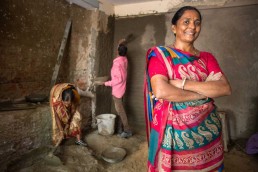No Lockdown for women’s rights – Poland shows the way
Abortions happen every day, in every country of the world. Over half of all unintended pregnancies end in abortion, with WHO estimating that around 56 million abortions take place globally each year.
Access to safe abortion is essential because there is enormous unmet need of contraceptives and it is detrimental to women’s choice, and reproductive autonomy. During emergencies like Covid -19 pandemic, such access becomes even more critical. The national lockdown also includes travel restrictions that many countries have imposed. This means it will impede contact with medical providers and pharmacies leading to reduced access to contraception of all kinds, including implants. These realities of women are bound to be compounded with the looming threat of reduced supply of commodities that global suppliers are already warning off!
While the speed with which governments like the U.S. have suspended abortion care during the pandemic highlights the fragility of abortion services, the efforts that we see in Poland today reaffirms the power of collectives, and more importantly the power of women’s collectives. The proposed ban imposed on abortion services in Poland stands thwarted by women’s groups, activists and rights advocates. While street protests are not possible, as Poland banned group gatherings, women, activists and campaigners took to social media and launched a “lockdown virtual demonstration” under the hashtag #ProtestAtHome. What the Polish experience indicates is that “rights” and especially women’s reproductive rights and autonomy cannot be locked down. When opposition heightens, activists and collectives find new means of expression and protest.
The Polish example has important lessons for our region. South Asia has the advantage of a vibrant civil society movement with a leading space occupied by women’s organisations which have rallied together to bring in significant changes in the policy environment. The recent example in India of affirmative amendments to the Medical Termination of Pregnancy (MTP) spearheaded by rights groups is a clear example. The examples that we are seeing from Poland, or UK where government has changed regulation on abortion pills for enabling its accessibility is a two way learning. First, that women’s rights and bodily integrity is under increased threat during the COVID 19 times. Second, that women are unstoppable when it comes to bodily autonomy. They can defy these threats despite the lockdowns. For Asia, countries such as Bhutan, Sri Lanka and Maldives where the category under which abortion is permissible continues to be extremely restrictive, it is high time to segregate states interventions from woman’s autonomy. The learnings from the success of women in Poland is a call for action for a vibrant and modern women’s movement in the region.
The power of the collective has never been this important as it is now. The time is opportune to find new mediums and expressions to affirm that women’s rights and reproductive autonomy cannot be under a lockdown!
Mr. Deepesh Gupta
Sr. Project Advisor OLE and Focal Point Gender, IPPF SARO
Ms. Neha Chauhan
Sr. Technical Advisor, Advocacy and Accountability, IPPF SARO
Beyond First Trimester Abortions Services Amid COVID19
The conservative estimates of limited accurate and evidence-based data shows that globally around 10-15% abortions take place during the second trimester period. For populous regions like Asia, these estimates translate into huge absolute numbers, making second trimester services as one of the priorities for addressing women’s health. Yet across South Asia, India is the only country that allow second trimester abortion followed by Nepal where it is permissible but only in cases of rape, incest and health risks to the woman.
As per the global turn away study (Bixby Centre) ti measure the incidence and reasons for denial of abortion under normal circumstances in four countries including Bangladesh and Nepal and South Asia, 2%-45% are denied legal abortion care in these countries. Around 14% women are turned away for high gestational age in Nepal. (Gerdts et al., 2014)
In 2014, at least 6% of all maternal deaths in Asia were unsafe abortions. COVID19 pandemic has further weakened the already debilitated reproductive health including safe abortion services by disrupting supply chain and manufacture of quarantine, women have even lesser options and minimal access to the service delivery points. The disruption of these essential service due to COVID 19 will result to highest number of contraception methods switch and discontinuations, extended periods of women bearing unwanted pregnancies, delay in seeking abortion services and highest need for the second-trimester services than ever. As per the recent Guttmacher Institute estimates, 10% proportional decline is predicted in the use of short and long-acting reversible contraceptive methods in Lower Middle-Income Countries (LMICs). Countries where seeking abortion services beyond the first trimester is restricted, women will be forced to continue their unwanted pregnancies till its full or resort to unsafe options. As per estimates, about 4.6 million women in the region are treated for unsafe abortion related complications each year. Reduced access would result in an additional 49 million women with an unmet need for modern contraceptiones and an addition 15 million unintended pregnancies over the course of a year.
While CSOs and women rights groups are demanding for self-management and hone-based abortion services (up to first trimester), it is equally important to also recognize the need for the women who alreadt cross or nearing approved gestational limit. COVID19 is an unprecedented challenge that as accentuated the urgency for recognizing women’s right to life, health, bodily autonomy and agency. The pandemic has brought to the forefront the consequences that lack of access can have on a women’s health. Considering the severity and urgency of the issue, it is time for countries to use the human rights framework to extend the gestational limit for abortion services during the pandemic and its impact period.
By Mr. Deepesh Gupta
Sr. Project Advisor – SRHR & Focal point Abortion, IPPF SARO

